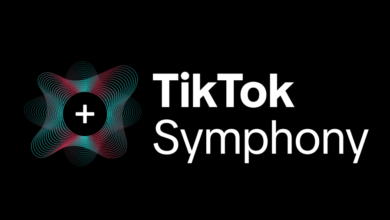What is the role of generative AI in academia? – News

Ever wished for a writing partner who’s part Shakespeare, part Silicon Valley?
The recent advancement of generative artificial intelligence (AI) like ChatGPT, Gemini, Bard and other large language models have made this possible and left many academicians talking.
Many professors, particularly in the English and communications discipline, have expressed fear that generative AI will hinder learning.
But some believe generative AI offers solutions that can solve many of the world’s problems.
Dr. Leslie Seawright, associate professor in technical and professional writing in Missouri State University’s English department, notes the truth lies between both extremes.
“It’s a helpful tool for students, faculty and industry professionals in nearly every field, yet a lazy adoption and use of whatever it produces isn’t beneficial,” Seawright said.
“The effective use of generative AI to improve, enhance and foster creative problem-solving and critical thinking is the way forward,” she added.
Seawright notes several MSU English faculty members are experimenting with ways to use and teach generative AI and other technologies.
Leveraging generative AI in the English discipline
Seawright believes generative AI programs are best used when viewed as personal writing assistants rather than authors. They can help to formulate writing topics and ideas, generate title suggestions and assist with proofreading and editing common genres and document types.
As for instructors, generative AI can offer ideas for assignments, create rubrics for assessment, provide curriculum innovations, suggest texts for course themes and identify potential journals for the publication of articles and creative works.
Seawright notes it is difficult to keep up with the new entries and tools in the AI market.
“My suggestion is to play with two or three at a time. Get comfortable giving prompts and seeing what the tool can do for you. Once you get comfortable with a tool, try a new one,” Seawright said.
“You might want to follow some AI influencers like ChatGPT for Teachers on Facebook and #AIforteachers on Instagram to keep up with new trends,” she added.
Balancing technology and writing pedagogy
According to Seawright, the biggest concerns among English faculty about generative AI are the potential for student cheating and overreliance on the tool for writing assignments.
“We want students to understand the fundamentals of writing and rhetoric so they can view generative AI as a tool, not as the alpha and omega of all writing tasks,” Seawright said.
Many faculty members fear relying too much on AI will rob students of discovering and finetuning their writing voice and identity.
“We love reading our students’ writing, so we’d be devastated to see their unique phrasing, word choice and voices disappear or be undone by generative AI,” Seawright said.
The future of AI in the English discipline
Generative AI shows promising potential in research. Seawright notes there are tools that can help sort and code quantitative and qualitative data.
“There have been several recent generative AI releases that promise to keep data safe while helping researchers better understand their research data,” Seawright said.
Additionally, programs like Parrot AI can transcribe audio interviews and focus group recordings within seconds and for free.
Having used AI to create title ideas for articles and summarize papers for conference abstracts and proposals, Seawright is currently researching how English faculty and communication professionals view the ethics of generative AI-created documents and visuals.
She highlights the Association for Business Communication, which has several working groups of faculty members researching various aspects of generative AI and its potential impact on teaching, learning and research.
Also, graduate students in the technical and professional writing program are working on AI research projects. For example, one student is documenting her interaction and use of AI at her job in the health care industry. Another student is interviewing grant reviewers to see if AI-generated grants can produce effective grant narratives.
“As we learn more about generative AI, we’ll have a clearer understanding of its benefits and drawbacks,” Seawright said.
Explore degree options in English


